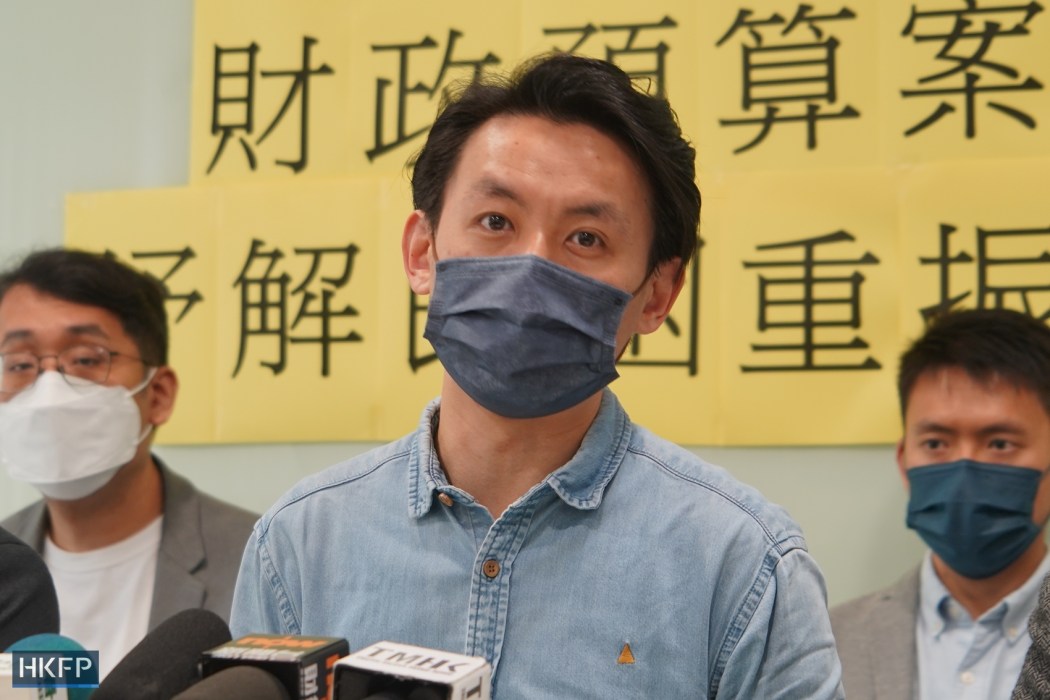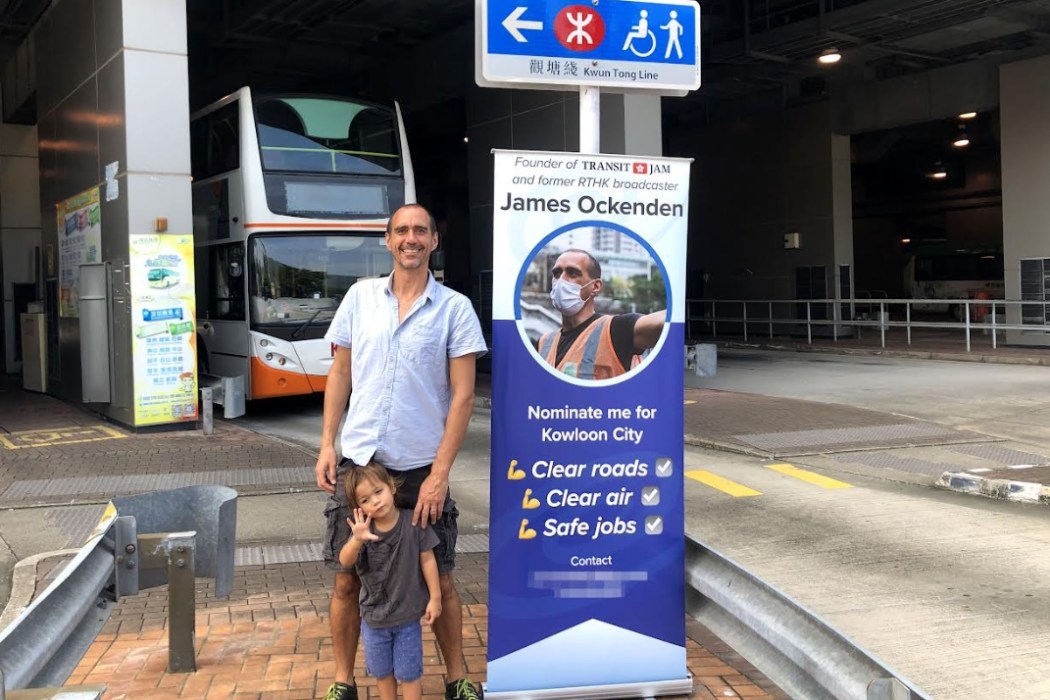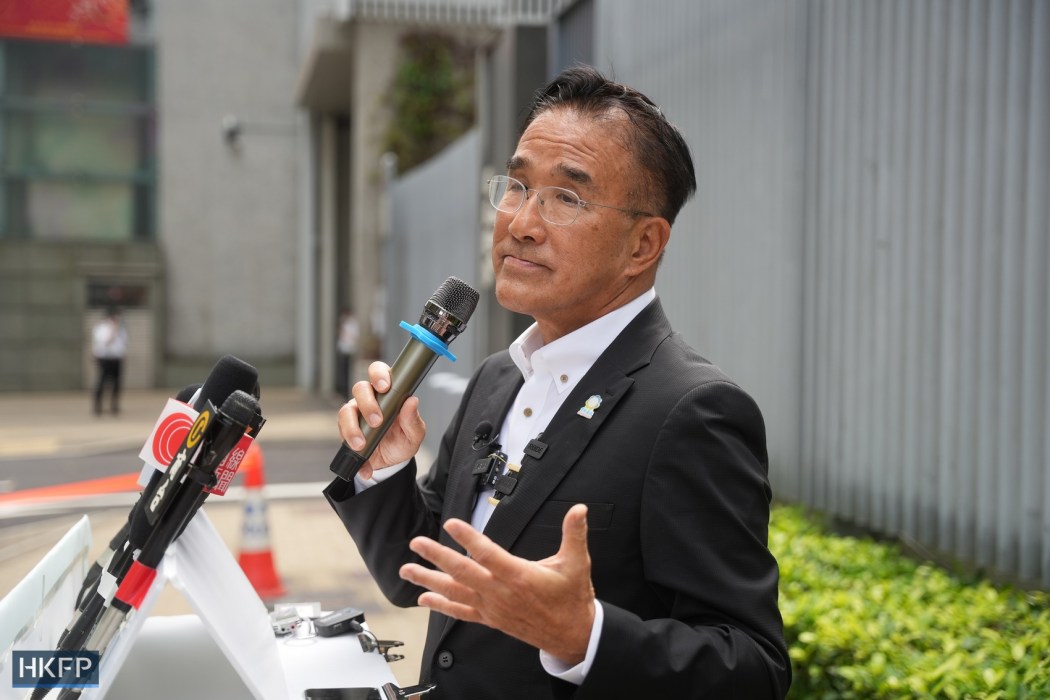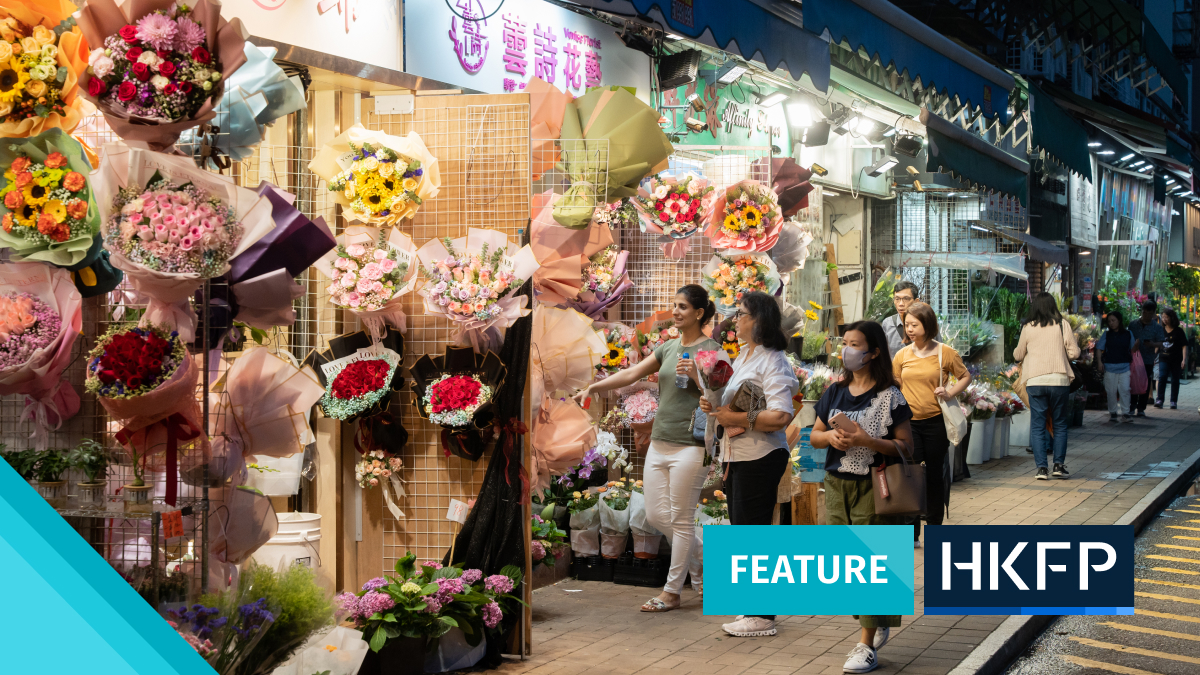Over 75 per cent of the candidates running in the directly-elected geographical constituencies in Hong Kong’s newly-restricted District Council race are also members of the committees responsible for nominating who runs.

The nomination period for the “patriots-only” District Council election – scheduled for December 10 – closed on Monday. The government received 400 nominations from election hopefuls, according to the figures released by the Registration and Electoral Office.
Among the candidates, 228 are running in the District Committee Constituencies, where 176 seats will be voted for by some 2,500 members of three district-level committees.
A total of 171 candidates will run in the District Council Geographical Constituencies, where just 88 seats will be chosen by 4.3 million registered voters.
Of the geographical constituencies hopefuls, 129 – or 75.4 per cent – also sit on the three committees and were responsible for nominating candidates, according to HKFP’s calculations. To run in the December race, candidates had to receive at least three nominations from each of the three committees.
The Democratic Alliance for the Betterment and Progress of Hong Kong (DAB), the city’s largest pro-Beijing political party, has put forward the most candidates for both constituencies, with 121 party members successfully being nominated for the race.
Pro-Beijing groups like the Hong Kong Federation of Trade Unions and the New People’s Party, and the pro-business Business and Professionals Alliance for Hong Kong and Liberal Party have also submitted nominations, alongside smaller pro-establishment groups.
However, no candidates from any of the city’s few remaining pro-democracy political parties were able to receive the nominations required. The Democratic Party, the city’s largest opposition party, had planned to field six candidates. It announced on Monday evening that none of its hopefuls had succeeded in getting the nominations required to run.
Democratic Party chairperson Lo Kin-hei thanked his fellow party members for making an effort under “heavy pressure” and “uncertainties” in a Chinese-language statement.
During previous elections, local media found that candidates declaring as “independent,” or of no affiliation, did in fact have ties to a political camp.
Nomination ‘out-of-reach’
Since the nomination period began on October 17, opposition parties and some independent candidates had complained that they could not reach members of the three committees to seek nominations.
“Some hopefuls received individual nominations from members of the three committees, but eventually we could not reach the threshold for nominations,” Lo said in the statement on Monday.

James Ockenden, an environmental activist who hoped to stand in the Kowloon City North constituency, told HKFP that he was “not too surprised” that he could not receive enough nominations to run.
“I am very disappointed about how difficult it is and out-of-reach [the members of the three committees] are,” Ockenden told HKFP in a phone interview on Monday evening.
He said he could only find the contact information of around 80 members on the three committees of the Kowloon City district. Only four replied, none of whom would nominate him.
He also said it was “shocking” that committee members were running for directly elected seats. Among the eight candidates running for directly-elected seats in Kowloon City district, seven were committee members.
“Those candidates are not nominating anyone else, so they are effectively out of the nomination pool, which is already small,” he said.

He proposed that in future elections, there should be a separate nomination committee whose members were barred from running. He also called for greater transparency to allow hopefuls to meet the nominators.
Centrist party Third Side announced last Friday that it would not have any candidates in the recently restricted race after they failed to receive the required nominations.
Caspar Wong, the party’s vice-chair told HKFP on Friday that the party had sent letters and emails to the members of the three committees after obtaining their contacts through the Home Affairs Department, but ultimately, the number of nominations they received was not enough.
“Elections have never been easy… when we face difficulties, we keep going forward,” Wong said in Cantonese, adding that the party would “look towards the future.”

Michael Tien, founder of the pro-establishment party Roundtable, also said on Monday that just one of his party members had got the number of nominations required to stand. Roundtable had hoped to field five candidates.
Tien, a pro-business lawmaker, said the remaining four hopefuls had doorstepped 241 committee members over the course of six days. Two-hundred did not respond, while 15 declined to listen to their election manifesto. Eventually, only seven agreed to nominate Roundtable’s hopefuls.
Chief Executive John Lee last week dismissed criticism of the nomination procedure, and said that those who were struggling to get nominations should “look into why they have problems.”
Alice Mak, secretary for home and youth affairs, also said that members of the three committees were rooted in the districts, and that it was a “false claim” that anyone dedicated to serving the community could not reach them.
Electoral overhaul
The December District Council race will be the first since the government overhauled the electoral system for the local councils once chosen largely by the public.
Plans to overhaul the District Council elections were unveiled in May 2023 to ensure only “patriots” were elected, following a pro-democracy landslide at the last polls in 2019.
The number of seats chosen democratically by the public were slashed from 452 to 88 – reducing the power of public votes to a fifth. The rest are to be chosen by the city’s leader and government-appointed committees.
Constituency boundaries were redrawn, the opposition were shut out, voting hours were slashed by an hour, and each local council is to be chaired by a government official, similar to colonial-era arrangements. All candidates undergo national security vetting to ensure patriotism.
Asked earlier this month if the government had an expected turnout rate, Secretary for Constitutional and Mainland Affairs Erick Tsang said turnout could not determine whether the electoral overhaul was a “success.”
“Turnout rate is affected by various factors. For example, the weather on the voting day will affect citizen’s desire to vote,” he said.
Tsang said that the high turnout rate during the District Council elections in 2019 coincided with Hong Kong’s “most polarised and darkest” period, Ming Pao reported. That year, the District Council election saw a record 71.2 per cent turnout rate, with around 2.94 million people casting their ballot.
This article has been corrected – click to view.
Correction 10pm, 30/10/2023: An earlier version of this article understated how many of the 171 candidates running in the District Council Geographical Constituencies were also members of the three committees. It should be 129 not 121. The original calculation omitted eight candidates who are running in a different district than they are on a committee for.
Support HKFP | Policies & Ethics | Error/typo? | Contact Us | Newsletter | Transparency & Annual Report | Apps
Help safeguard press freedom & keep HKFP free for all readers by supporting our team

Original reporting on HKFP is backed by our monthly contributors.
Almost 1,000 monthly donors make HKFP possible. Each contributes an average of HK$200/month to support our award-winning original reporting, keeping the city’s only independent English-language outlet free-to-access for all. Three reasons to join us:
- 🔎 Transparent & efficient: As a non-profit, we are externally audited each year, publishing our income/outgoings annually, as the city’s most transparent news outlet.
- 🔒 Accurate & accountable: Our reporting is governed by a comprehensive Ethics Code. We are 100% independent, and not answerable to any tycoon, mainland owners or shareholders. Check out our latest Annual Report, and help support press freedom.
- 💰 It’s fast, secure & easy: We accept most payment methods – cancel anytime, and receive a free tote bag and pen if you contribute HK$150/month or more.
MORE Original Reporting
HKFP has an impartial stance, transparent funding, and balanced coverage guided by an Ethics Code and Corrections Policy.
Support press freedom & help us surpass 1,000 monthly Patrons: 100% independent, governed by an ethics code & not-for-profit.









